Daily Business Report-Feb. 13, 2019
A rendering of the Pure Water plant (Image courtesy of the city of San Diego)
Morning Report:
San Diego’s big recycled water
project is getting more expensive
Voice of San Diego
A new water recycling system is on its way to becoming the most expensive public works project San Diego has ever undertaken.
Pure Water, as it’s called, could provide a third of the city’s drinking water within 20 years — while also reducing the amount of treated sewage the city dumps into the ocean.
But that project, estimated in 2015 to cost some $3 billion, could now have a price tag of no less than $4.8 billion and potentially as much as $9 billion, Ry Rivard reports, based on previously undisclosed internal estimates from the Public Utilities Department.
The first phase of the project, which is expected to produce about 30 million gallons of drinkable water each day, is underway now and could be done by 2024. Estimates for the second phase of the project, though, now range from $3.4 billion to $7.4 billion.
While the cost to the city of building Pure Water has been increasing, the city has not yet thought to estimate how much the project could ultimately cost water customers through their monthly water bills, as Rivard covered earlier this month.
___________________
UC San Diego wants to put mini Target on campus
Target will play a central role in UC San Diego’s efforts to create a city-within-a-city on campus should talks lead to a miniature-sized store inside the student center.
The retailer and the public institution are currently negotiating the terms of a lease for a small-format Target venue in place of the campus bookstore, officials confirmed to the Union-Tribune.
The dialogue comes as UCSD works to construct housing to accommodate double the number of students on campus as it does today. For instance, the in-construction, $627 million North Torrey Pines Living and Learning Center will add 2,000 beds, as well as retail to support a growing student population that has limited access to food and shops.
___________________
Scripps Health announces new,
larger behavioral health facility
Scripps Health announced that it will develop a new inpatient behavioral health facility in partnership with Acadia Healthcare Company Inc. that will provide treatment for three times as many patients as its existing behavioral health unit at Scripps Mercy Hospital San Diego.
The new center, which will serve as a regional resource to meet the needs of patients from across San Diego County, will be operated by a joint venture between Scripps Health and Acadia, a provider of behavioral health services through its network of 586 health care facilities with approximately 18,000 beds in 40 states, the United Kingdom and Puerto Rico.
The planned 120-bed facility eventually will replace Scripps Mercy Hospital’s current 36-bed inpatient behavioral health unit as part of a master development plan announced last year that addresses state seismic safety regulations. Scripps will continue to offer behavioral health support at all of its hospital emergency departments and urgent care centers on an ongoing basis.
The new center, to be located in Chula Vista, is expected to be complete and ready to receive patients in 2023. Until then, Scripps will continue to operate its current inpatient behavioral health unit, while also investing more than $1 million in safety upgrades for the remaining years it is in service.
When complete, the new center will employ approximately 250 people, compared to the 93 employees at Scripps’ current inpatient behavioral health unit.
“This collaboration gives us the opportunity not only to continue, but to significantly expand our commitment to serve behavioral health patients,” said Scripps Health President and CEO Chris Van Gorder.
___________________
Cal State San Marcos launching
craft brewing science program
California State University San Marcos is launching an innovative EngiBeering certificate program that explores the science, engineering and art behind brewing craft beer and provides hands-on experience at local breweries. Classes begin on March 19.
“San Diego has a thriving craft brewing industry, and it needs more qualified workers,” says Jackie Trischman, faculty co-director of the EngiBeering program and CSUSM professor of chemistry and biochemistry. “This program prepares students for every aspect of a brewing operation, from buying the materials and brewing to bottling and selling.”
Offered through Extended Learning in partnership with the College of Science and Mathematics, the EngiBeering program features individual courses that examine the basics of brewing as well as two specialized certificates: Basic EngiBeering (12 units) and Advanced Brewing Science (16 units). The first two courses starting March 19 are open to the public: ENGB 300/From Sumer to San Diego: The Evolution of Beer Across Time and Space, and ENGB 310/Sensory Evaluation of Beer.
The program is designed for current employees of breweries, individuals who aspire to work in the craft beer industry, homebrewers and craft enthusiasts who want to better understand production from recipe development to how to evaluate beer. Students will learn directly from faculty, industry experts and local brewery owners, such as Paul Sangster, co-founder and brewmaster at Rip Current Brewing, 2018 president of the San Diego Brewers Guild and winner of more than 150 medals in three years of homebrewing competition.
Learn more about the EngiBeering program and register for classes at csusm.edu/el/engibeeringor by contacting our enrollment specialists at (760) 750-4004 or el.inquiry@csusm.edu.
___________________
Genetics company to pay nearly
$2 million for false Medicare claims
Times of San Diego
A San Diego-based genetics testing company has agreed to pay nearly $2 million to settle allegations that it submitted false claims to Medicare for unnecessary testing on prostate cancer patients, federal authorities said Monday. GenomeDx Biosciences Corp. submitted claims for test between September 2015 and June 2017, despite the affected patients not having risk factors necessitating the test.
___________________
County supervisors vote to request
$125 million to help homeless
The county Board of Supervisors voted Tuesday to allow the Health and Human Services Agency to apply for and receive about $125 million to help people with serious mental illness and who are homeless or at risk of losing their home.
The state funds come from the No Place Like Home program that California voters approved in Nov. 2018. The program provides funding to local communities for the development of permanent supportive housing for people in need of mental health services and who are experiencing or are at-risk of homelessness.
“The No Place Like Home program will be used to leverage other funding sources for the development of affordable housing throughout the region,” said David Estrella, director of HHSA’s Housing and Community Development Services.
The County is eligible to receive an estimated $125 million in No Place Like Home funding over the next four years for units that will house about 1,100 people. Eligible activities under the No Place Like Home program include acquisition, rehabilitation, new construction and preservation of permanent supportive housing, which is affordable housing coupled with supportive services to ensure the success of its residents.
___________________
Membership in California’s government
unions plummeted in 2018, federal report shows
Despite a surging economy, union membership in California dropped by 86,000 last year, the most dramatic decline in the nation, the federal Bureau of Labor Statistics reports. The conservative California Policy Center attributed the decline to the U.S. Supreme Court’s landmark 2018 decision in Janus v AFSCME.
The 3.45 percent decline in California’s union membership came even as the state’s employment growth surged 2 percent. Taken together, the net rate of union membership dropped by more than 5 percent.
In the days following the court’s June 27 Janus decision, California state agencies prohibited automatic paycheck deductions for some 41,000 government employees. California Policy Center predicted it could help about 63,770 other government workers, all of them dues-paying members, to resign from their unions post-Janus. That projection proved too conservative by about 35 percent, the Bureau of Labor Statistics report shows.
“This massive drop in union membership reveals the power of California Policy Center’s government employee messaging effort,” said CPC founder and CEO Mark Bucher.
___________________
Personnel Announcements
Michele Barrow, Jennifer Glaser earn
partnership at Lavine, Lofgren, Morris & Engelberg
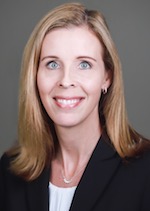
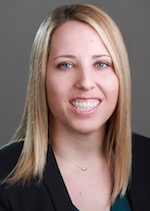
Lavine, Lofgren, Morris & Engelberg LLP announce the admittance of Michele Barrow, CPA, and Jennifer Glaser, CPA, to the partnership.
Barrow has been with the firm since 2006 and has more than 17 years of experience providing tax compliance and planning services to corporations, partnerships, individuals and trusts. Her client base encompasses many industries, including professional services, manufacturing and construction. Barrow received a Bachelor of Science degree in accounting from California State University San Marcos and holds a Master of Science in Taxation from San Diego State University.
Glaser started her career at LLME in 2004 and holds more than 14 years of experience providing tax compliance and planning services to corporations, partnerships, individuals, trusts and nonprofits. She works with a wide range of clients, including those within the industries of real estate, professional services and hospitality. Glaser has also been actively involved with the Junior League of San Diego for over 10 years, recently serving as executive vice president. She received her Bachelor of Science degree in accounting from the University of San Diego.
___________________
National Conflict Resolution Center
to present 2019 Peacemaker Awards
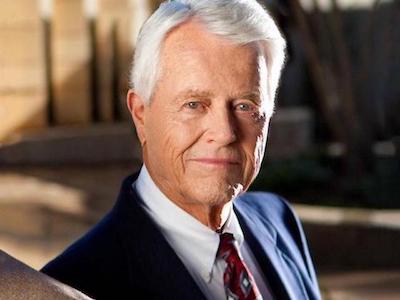
Philanthropist Malin Burnham and Father Gregory Boyle, founder of Homeboy Industries in Los Angeles, will receive 2019 Peacemaker Awards at the National Conflict Resolution Center’s 31st annual Peacemaker Awards Dinner on Saturday, April 6, at the Hilton San Diego Bayfront. Burnham is the Philanthropy in Peacemaking honoree and Boyle is the National Peacemaker honoree.
The center also will present Community Hero Awards to four individuals: Deputy Public Defender Steve Binder, co-founder of the San Diego Homeless Court Program; Imam Taha Hassane, director of the Islamic Center of San Diego; Bishop Cornelius Bowser, a gun violence prevention activist and co-founder of the Community Assistance Support Team; and Kim Sontag-Mulder, co-president of the San Diego chapter of NOW (the National Organization for Women), and a steadfast advocate for gender equity for more than 30 years.
The theme of this year’s event is “Celebrating Human Dignity” honoring individuals and organizations dedicated to peacemaking in their own neighborhoods and around the world.
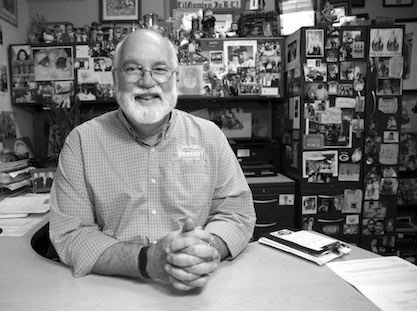
Event proceeds will support NCRC’s work to unite people, cultures, and organizations through civility and inclusive communication, such as its Avoiding the Pipeline to Prison initiative. This partnership with regional law enforcement and education leaders uses restorative justice practices to keep at-risk youth in school and out of detention facilities, reducing public spending on costly prosecution and incarceration. Former regional head of Cox Communications and community leader Bill Geppert will be the event’s emcee.
“National Conflict Resolution Center educates, encourages and inspires our community to apply effective, inclusive communication and conflict resolution skills in every aspect of life. Although conflict can be painful and destructive, it also brings opportunities for growth through improved understanding and insight,” said NCRC President Steven P. Dinkin. “This year’s event will continue our tradition of honoring remarkable changemakers who are providing innovative and collaborative solutions to some of society’s most pressing issues.”
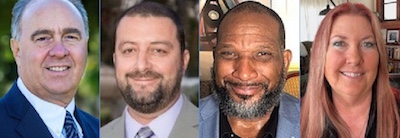
Burnham is one of the region’s most renowned philanthropists and business leaders. He has served on two dozen boards and committees, and he had a direct hand in bringing the America’s Cup races, the USS Midway Museum, and the U.S. Olympic Training Center to San Diego County. Burnham’s charitable and civic involvements include The Malin Burnham Center for Civic Engagement at the San Diego Foundation, the Sanford Burnham Prebys Medical Discovery Institute, and the Burnham-Moores Center for Real Estate at USD, just to name a few. He is also the author of the book “Community Before Self: Seventy Years of Making Waves.”
Father Gregory Boyle is founder of Homeboy Industries based in Los Angeles, the largest gang intervention, rehabilitation and re-entry program in the nation. Boyle is being honored for his work focusing on the most hardened gang members and ex-cons while pioneering passionate restorative practices that help heal lives and restore communities.




